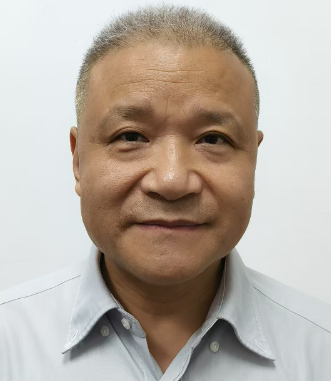
Prof. Yungang Liu
School of Public Health, Southern Medical University, China
Title: Research Strategies for Metabolism-Depending Organic Promutagens
Abstract:
Environmental pollutants are commonly chemically stable and environmentally persistent, which become capable of covalently binding macromolecules and inducing relevant toxic effects only after metabolic activation. Various mutagenicity assays serve as screening tests for chemical carcinogens, however, classical in vitro mutagenicity assays are typically lack of biotransformation enzyme activities; even in the presence of in vitro bioactivating systems (such as rat liver S9 mix), false negative results may still appear due to several reasons: (1) some active metabolites are too short-lived to reach DNA molecules; (2) some metabolites are charged with electricity thus impermeable to the membrane of test cells; (3) the exact activating enzyme may not be abundant in the S9 fraction, as Aroclor-1254 does not induce Cyp2e1 and Cyp1b1 is regularly not expressed in the liver. Employing molecular docking technologies may help predict the metabolizing enzyme(s) specific for an organic compound, based on which appropriate gentically engineered cell lines expressing the relevant enzymes may be used to test its metablism-dependent genotoxicity, which would otherwise give rise to false negative results in standard mutagenicity assays. Alternatively, using modulator of some biotransformation enztymes in the genotoxicity assays in human cell lines is significant for identifying the activating or detoxifying enzymes for particular substances requiring metabolic activation. With the data in cell culture models, especially after locating the activating enzyme and species difference in metabolizing/activating a test compound, it is more selective and cost-effective to include intact animals into further confirmation of its genotoxicity and metabolic relevance. In recent years, we have identified that bisphenol compounds are extremely potent (threshold concentrations reaching very low nano molars) in enhancing the expression of several important human CYP enzymes, and potentiating the genotoxicity of relevant carcinogens, such as benzo(a)pyene, aflatoxin B1, and tobacco-specific nitrosamine NNK. Moreover, we have observed that some environmentally polluting therapeutic drugs, such as carbamazepine and phenytoin, are mutagenic after metabolic activation, and this has recently been preliminarily confirmed in an intact mouse model.
Biography:
Education: 1980-1985 Undergraduate in Chongqing Medical University, School of Clinical Medicine, graduation with Medical Bachelor degree;1987-1990 Postgraduate in Chongqing Medical University, School of Medical Laboratory, graduation with Master degree in clinical biochemistry;1992-1995 Ph.D. student in West China University of Medical Sciences, School of Public Health, graduation with Ph.D. in Occupational Health.
Occupation & research experiences:1985-1987 working as a physician in Luzhou Sanitation and Anti-epidemic Station, Sichuan Province, China; 1990-1992 teaching assistant in Chongqing Medical University, School of Preventive Medicine;1995-2000 a faculty member in Guangzhou Medical College, as lecturer and later associate professor; 2000-2003 guest scientist and holder of DAAD scholarship, in German Institute of Human Nutrition, Department of Nutritional Toxicology;2003-2009 associate scholar in the University of Iowa, College of Pharmacy; 2009 till now, professor in Southern Medical University, School of Public Health, 2010-2019 holding the position of the head of Department of Toxicology. Research field: Metabolic Activation and Genetic Toxicity of Environmental Organic compounds.
Major accomplishments: Successful supervision of 45 postgraduate students, 7 Ph.D. students, who graduated and obtained expected academic degrees; holding research grants from the national, provincial, and university levels; publications including 10 in domestic Chinese academic journals, and 75 in peer-reviewed international journals; teaching activities including courses such as Preventive Medicine, Health Promotion and Health Education, Essentials of Toxicology, the latter two for international Master of Public Health students.